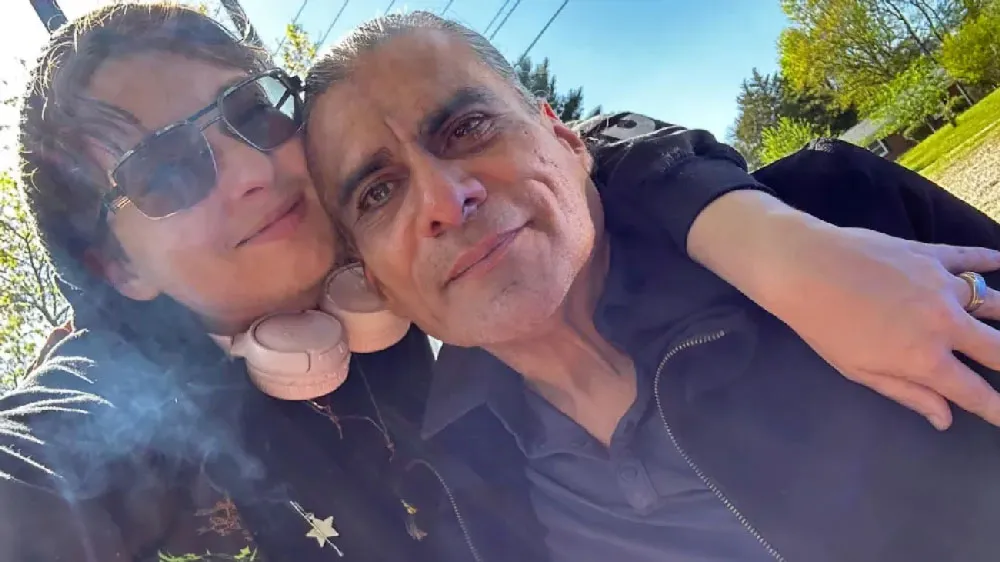December 7, 2013
Bayview Couple Faces Eviction
Kilian Melloy READ TIME: 3 MIN.
A couple living in San Francisco's Bayview district is facing eviction from their home after the landlord said he wanted to move in, and then raised the rent $1,000. Their struggle highlights the fact that while much attention has been paid to apartment dwellers facing evictions, people in single-family homes may experience similar problems.
Jeffery Lactaoen, 48, and Robert Brownstein, 44, who are domestic partners, received a 30-day notice to terminate tenancy August 30 in which landlord Shazhad Ahmed said his wife was coming from India and they planned to live in the home, which is in the 1100 block of Mendell Street. Ahmed's brother Shazid Ahmed is also the couple's landlord and signed the notice as well.
Lactaoen, who's living with HIV and is disabled, said he rejected the letter because it should have allowed for 60 days, rather than 30, and the notice didn't mention relocation expenses, which are legally required.
The Ahmeds rescinded the termination notice in a September 10 letter, saying, "Your tenancy remains in good standing." However, the couple then received a September 18 notice from Daniel Bornstein, the Ahmeds' attorney, that as of December 1 their rent would increase from $2,200 to $3,200 a month.
The couple thinks the Ahmeds are retaliating because Lactaoen asserted his and Brownstein's rights, and raising the rent in order to circumvent eviction laws and avoid paying relocation funds. The property is not covered by rent control laws.
"I guess my landlord has found a way around having to pay us relocation costs and forcing us out by us not being able to pay that high of a rent," said Lactaoen.
Legal limits on rent increases don't apply since it's a single-family home. Lactaoen acknowledged the three bedroom house "is probably worth a lot more than $2,200" per month.
Neither Shazhad Ahmed nor Bornstein responded to interview requests.
Lactaoen noted there's been heavy media coverage of people being evicted from their apartments in recent months as landlords seek to exploit the city's tech boom to get higher rents or sell properties to developers. However, there's been little about people having to leave single-family homes.
"I get the impression a lot of people don't want to pursue" working to keep their homes in these situations, said Brownstein, but "we urge other people to not back down."
The couple has been working with agencies including the San Francisco Rent Board, the San Francisco Tenants Union, and AIDS Legal Referral Panel to try to stay in the home, which they share with a dog and two cats. The one-story house has hardwood floors and walls covered with artwork and photos of friends.
Lactaoen and Brownstein filed an "alleged wrongful eviction" report with the rent board November 22. On November 25, the agency issued a notice that it had received the report.
The Ahmeds had seven days to respond to the rent board's receipt notice. As of Tuesday, December 3, both Lactaoen and a rent board staffer said that neither the Ahmeds nor Bornstein had responded. Lactaoen said he and Brownstein were sending Ahmed a check for the rent that they've been paying, ignoring the increase.
The rent board receipt notes that when the tenant doesn't vacate the home, the landlord has to file an unlawful detainer complaint and serve the tenant with a summons, to which the tenant has five days to respond. Eventually, if the tenant loses the case, a court may order him to leave.
However, an attachment to the November 25 document states, "The landlord should be aware that it is a serious violation of state and local law for a landlord to retaliate - or threaten to retaliate - against a tenant for the tenant's peaceful exercise of any legal right(s), which includes the filing of a petition at the rent board."
Lactaoen, who receives a subsidy through the San Francisco AIDS Foundation that covers about $600 of the rent each month, moved into the house two and a half years ago. Brownstein, a part-time piano teacher, joined him in February 2012. Along with the subsidy, Lactaoen also receives Social Security disability and private disability insurance.
If they have to leave the house, the men say they couldn't afford to stay in the city. Lactaoen said the thought of losing access to the quality health care he now receives "scares me."
What can also be scary is the area where the couple lives. Their home is in one of San Francisco's roughest neighborhoods. Lactaoen said in recent weeks three people had been shot "just up the street from us."
However, he and Brownstein are "really comfortable" in the home, which he called "cute."
Brownstein said there's been "some improvement" in the neighborhood, and "I would love to stay here" to see how it develops.
Kilian Melloy serves as EDGE Media Network's Associate Arts Editor and Staff Contributor. His professional memberships include the National Lesbian & Gay Journalists Association, the Boston Online Film Critics Association, The Gay and Lesbian Entertainment Critics Association, and the Boston Theater Critics Association's Elliot Norton Awards Committee.




